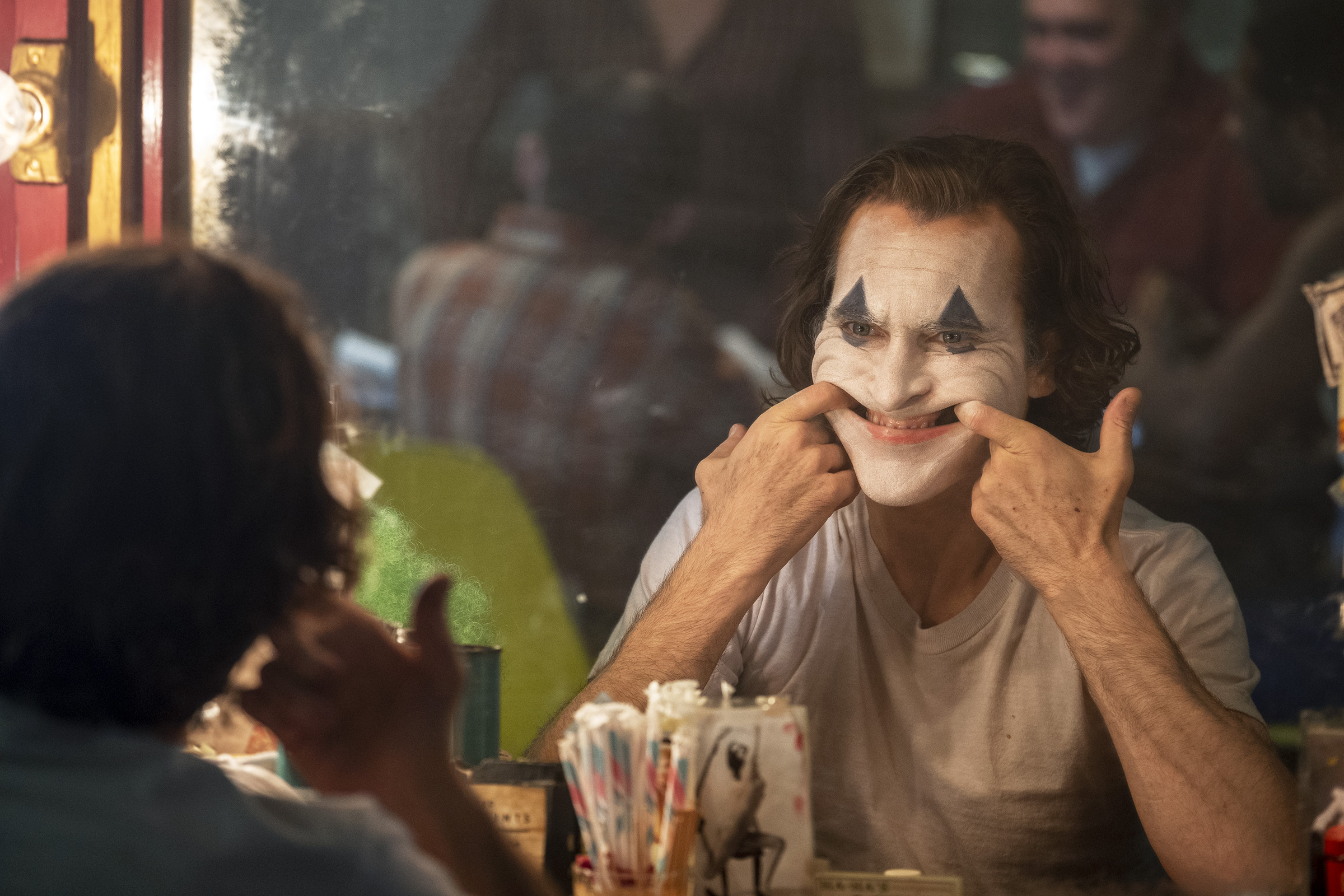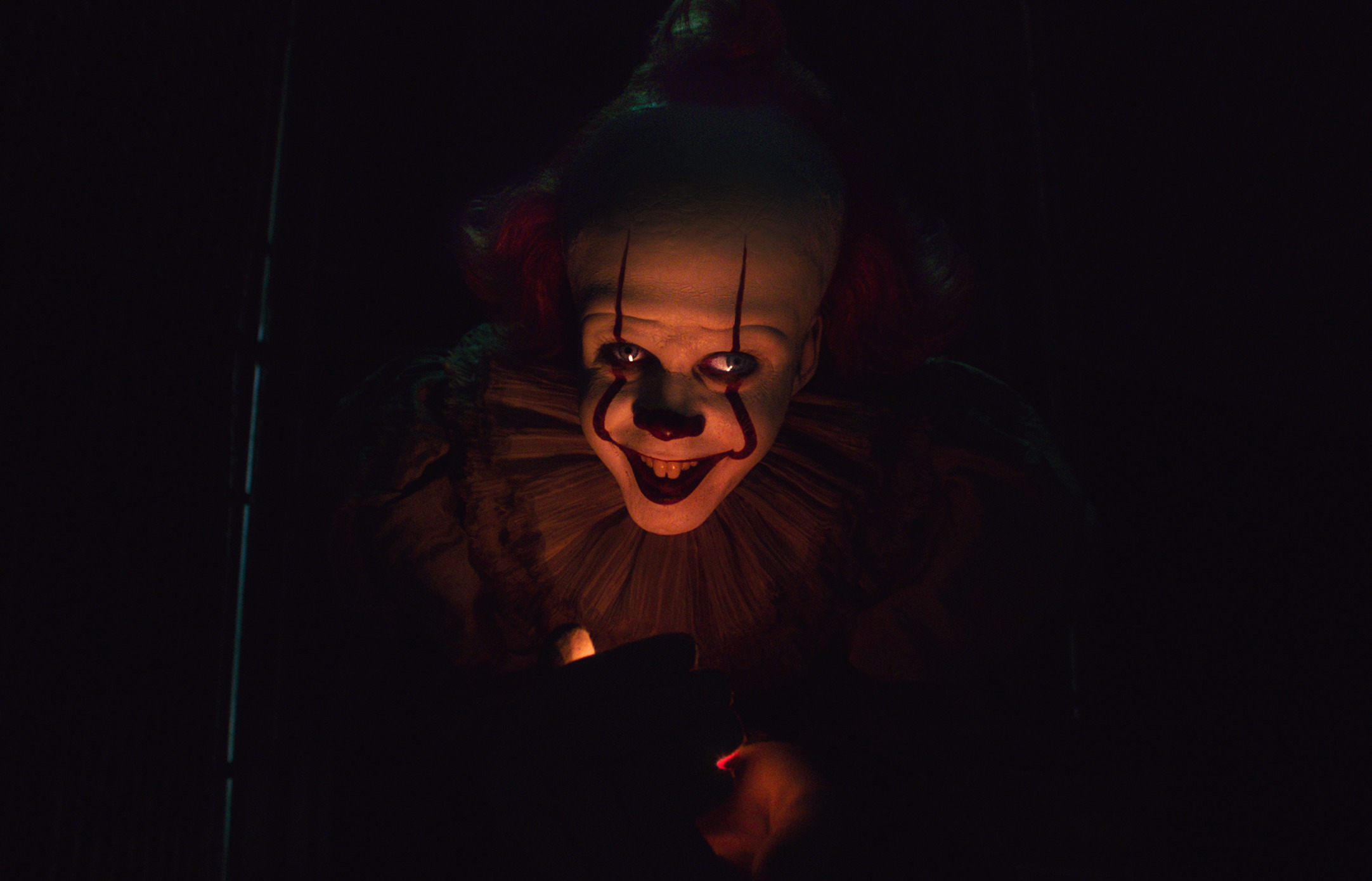It’s been a rough few years for people who have a fear of clowns. In the wake of the ‘clown attack’ craze that reached a fever pitch in 2016, movies about creepy clowns have taken over the entertainment landscape. This fall alone, ads featuring the white-painted faces of characters like IT Chapter Two‘s Pennywise and the Joker were plastered across billboards and liable to pop up on TV or computer screens at any moment.
Earlier this month, Magnet Releasing even debuted a documentary about Wrinkles the Clown, the infamous Florida man whose work as a creepy clown-for-hire has gone massively viral in recent years. A local legend, Wrinkles is a 69-year-old retiree who will show up in a terrifying clown suit to scare the pants off anyone you ask him to — even your misbehaving child. In 2015, he told the Washington Post that he gets hundreds of phone calls a day requesting his services. “We know that there’s a human underneath and yet, you don’t know their identity,” a voiceover says of Wrinkles in the trailer for the doc. “That creeps people out.” Indeed.
But why are people afraid of clowns to begin with? Although professional clowns have long been fixtures at family-friendly events like children’s birthday parties and the circus, according to Dr. Rami Nader, a registered psychologist practicing at Vancouver’s North Shore Stress and Anxiety Clinic, the fear of clowns often stems from that feeling of not knowing what’s going on in the mind of the person behind the face paint or mask.
“Clowns’ faces are disguised and they have these large artificial displays of emotion. So you have a clown with a painted face and a big smile, but you don’t really know what they’re actually feeling,” he tells TIME. “There’s this inherent mistrust that what they’re presenting to you isn’t what they’re actually feeling.”

Frank T. McAndrew, a professor of psychology at Knox College, adds that clowns have a long history of being seen as suspicious. “[Some of the] very first clowns were the court jesters who poked fun at kings and made people in high places uncomfortable. That’s why they exist,” he tells TIME of the history of clowns in medieval Europe. “They’re designed to make people afraid. If you go all the way back to the beginning of clownhood, they’ve always been bad. They’re pranksters, they play tricks.”
As David Kiser, director of talent for Ringling Bros. and Barnum & Bailey Circus, told Smithsonian Magazine in 2013, even going back to ancient times, clowns have always had a dark side. “In one way, the clown has always been an impish spirit,” Kiser said. “As he’s kind of grown up, he’s always been about fun, but part of that fun has been a bit of mischief.”
Of course, pop culture’s recent trend toward depicting clowns as menacing and murderous hasn’t helped to improve their reputation. “When people hear ‘clown,’ the first associations that pop into their head are the killer clowns in the movies — It, the Joker— and then John Wayne Gacy, the real-life mass murderer,” McAndrew says of the 1970s serial killer who became known as the “Killer Clown” for his volunteer clown work. “It’s kind of hard to get past all of that.”

However, while many people are apprehensive or fearful of clowns, both Nader and McAndrew agree that someone having an actual phobia of clowns, a.k.a. coulrophobia, is rare.
“To be a phobia, the fear of clowns would have to cause the person a great deal of distress and interfere in their life,” Nader says. “Fortunately, we live in a society where clowns aren’t just wandering around, so it’s pretty easy to avoid them or at least not come into contact with them very regularly. Rarely does this fear ever cause a person to experience a disruption in their lifestyle or ability to do things.”
So if people are so scared of them, why does society’s fascination with creepy clowns continue to endure? McAndrew, for one, chalks it up to human nature.
“We like to learn about dangers in a safe way so that we’re prepared in some unknown future time to deal with them if they ever come our way. So by going to see IT and watching this evil clown lure children in and kill them, we learn strategies for avoiding that kind of fate ourselves,” he says. “We’re not consciously sitting there, watching the movie and thinking these things, but that impulse to like to scare ourselves is there.”
Like it or not, it seems like creepy clowns are here to stay.
More Must-Reads from TIME
- Cybersecurity Experts Are Sounding the Alarm on DOGE
- Meet the 2025 Women of the Year
- The Harsh Truth About Disability Inclusion
- Why Do More Young Adults Have Cancer?
- Colman Domingo Leads With Radical Love
- How to Get Better at Doing Things Alone
- Michelle Zauner Stares Down the Darkness
Write to Megan McCluskey at megan.mccluskey@time.com